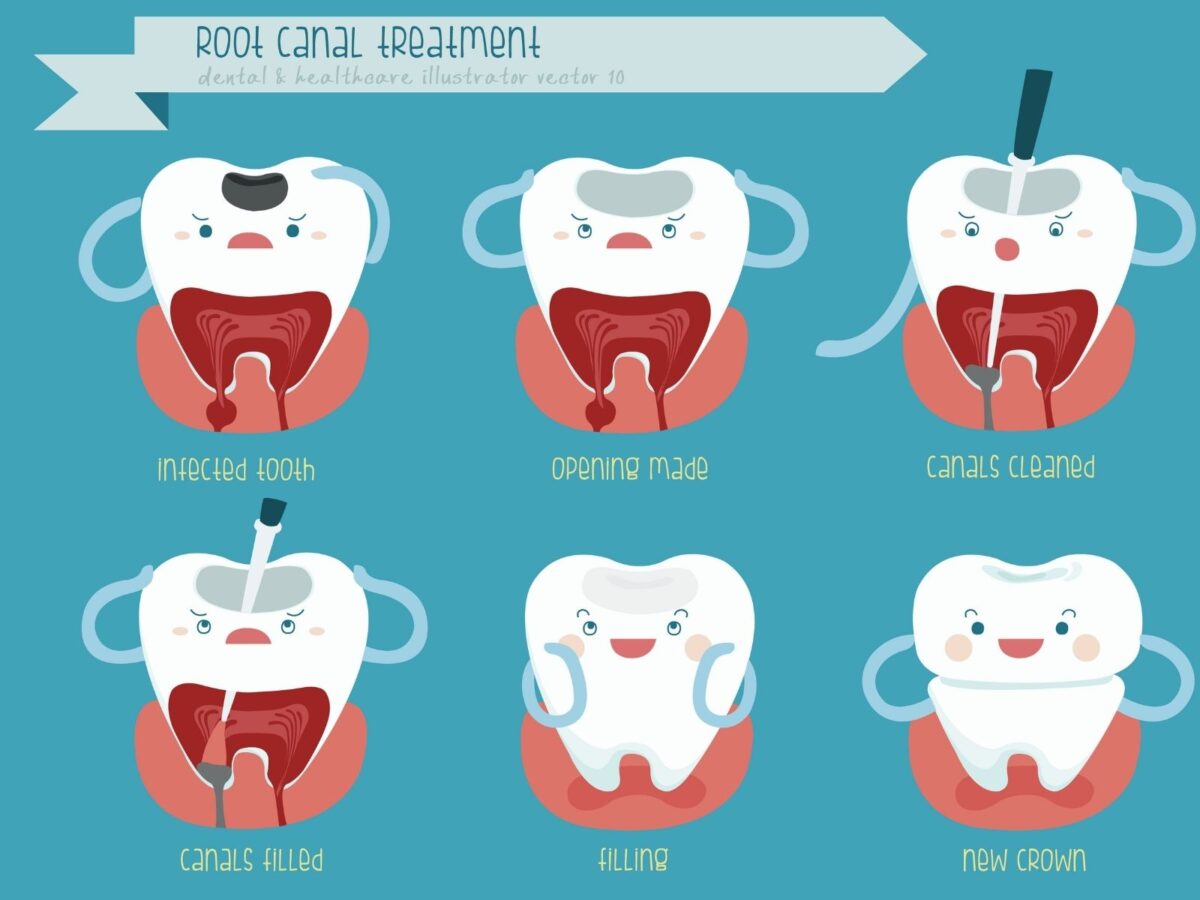Blog
Dental hygiene tips for healthy teeth & gums

Managing Post-Root Canal Pain: Tips For A Smooth Recovery
Cavities are quite common for both adults and children. Most people try to ignore it until it is too late. It often leads to damaged pulp that increases the risk of infection spreading to neighboring teeth. Your dentist will recommend a root canal procedure when a cavity is too large to fill. It is quite expensive but a must to protect your oral health.
This article will help you learn why a root canal is essential. You will also explore post-procedure care tips. With these tips, you can simplify your recovery process. You can also avoid the risk of infections and get healthier quickly. Let us dive into the details to learn more about root canals and tips for their treatment.
Root Canal Procedure
There is a soft tissue present beneath the hard layer of your tooth. This is the pulp where blood vessels, nerves, and connective tissue are present. When you ignore your cavities for too long, they might infect this soft tissue. It becomes essential to remove the infected portion of the pulp to restore oral hygiene.
A root canal procedure includes the removal of the pulp. It also cleans the neighboring areas to avoid infection. It is painless and quite effective than other cavity treatments. The appearance and efficiency of the tooth are retained quite quickly after the root canal procedure.
If one ignores the cavities after this point, tooth extraction becomes the only option. You can observe the signs that indicate you might need a root canal procedure. Extreme sensitivity while eating hot or cold foods is one of the signs. Also, you must follow some guidelines after the procedure. These will help you manage the pain and heal the wounds faster.
Pain management
Discomfort and even some pain if common after a procedure. A root canal involves the use of anesthesia, this makes the patient experience mild pain as soon as it starts to wear off. You can consult the dentist to recommend some over-the-counter medications. You can also wait for a few days as the discomfort reduces considerably after the procedure.
Food Restrictions
You must avoid certain food items for a few weeks after the procedure. You should also avoid hard, crunchy, or sticky foods to avoid pressure on the procedure area. You also must not chew from the side where the root canal procedure was performed. You must stick to soft food options such as yogurt, smoothies, and soups. It is also recommended that you avoid extremely hot or cold food. This could dislodge the temporary fillings and irritate the tooth. This will also slow down the healing process for the treatment.
Improve Oral Care
The best way to help with the healing process is to practice oral hygiene. You must ensure that your oral care is maintained after the root canal procedure. This helps you avoid the spread of infection or irritation. You should stick to a soft toothbrush, and gentle strokes are recommended. You must continue your brushing and flossing routine to keep the area clean. However, being a bit gentle can help you improve your oral care without causing any discomfort.
Follow Up With Dental Experts
You must always follow the guidelines of the experts. The endodontist will suggest some tips that you must remember. You also need to revisit the clinic after a few days to get your wound checked. The professionals can check and identify if any other problems are there. They can also provide permanent restorations and protect teeth from fracture or contamination. With follow-up visits, you can heal your wound quicker and avoid the risk of infection spreading to a much larger extent. These steps play a crucial role in improving root canal treatment longevity, ensuring your treated tooth remains healthy and functional for years to come.
Look For Signs Of Infection or Swelling
People often tend to forget that even if the procedure is done, you must stay conscious of the after-procedure care. Most patients often get infections due to a lack of proper oral care after a successful root canal. It is better to look for signs to avoid such situations.
You must ensure your oral care is maintained. You must inform your endodontist about r signs of discomfort such as swelling, and redness. You can also use cold compresses and ice packs to reduce swelling.
A Healthy Lifestyle
Other than the tips mentioned above, there is something more you can do. You must have a balanced diet, stay properly hydrated, and take care of your overall oral health. You might follow a routine for proper oral care for a few weeks, but you might forget about it as soon as you return to your normal routine.
You must include certain measures regularly to improve your oral health. With stress management and general oral care, you can heal much quicker and get back to normal activities much more smoothly.
Conclusion
Cavities are always a challenging problem. You need to act quickly in order to save your natural teeth. If you ignore the signs, you might have a tooth extraction. Early cavities can be filled and managed easily. But if has infected your pulp you need to visit an endodontist. Now, only a root canal procedure can save your natural teeth.
You can visit experts at Elgin Dentist TX, to consult your oral problems. You can get your cavities checked and consult aftercare tips for root canal procedures. With effective tips, you can enjoy a smooth recovery post-root canal procedure.


